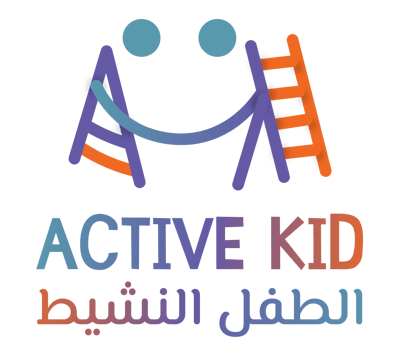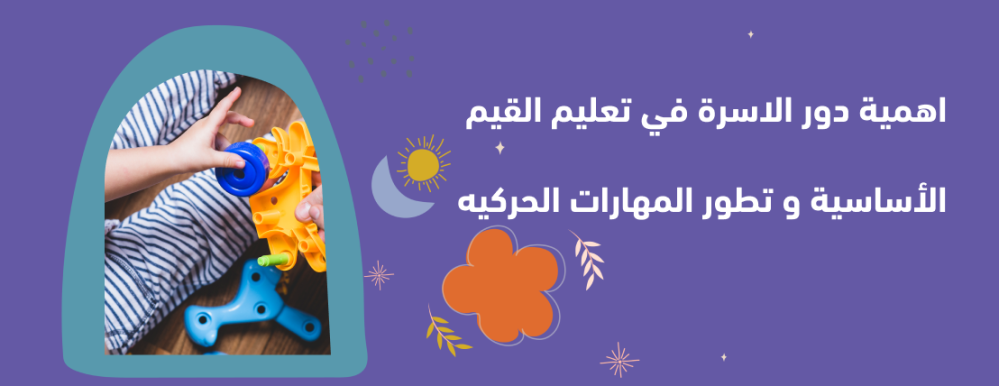The role of the family in developing children's skills is the cornerstone of building the child's personality and developing his abilities. The child acquires his behaviors and learns from the surrounding environment from the moment of birth, and the family is the first institution that influences his social and emotional upbringing. In this article, we will discuss the role of the family in developing children's basic values and skills, focusing on its role in social upbringing and psychological development, and how the family can achieve a balance between all these aspects.
The importance of the family's role in teaching basic values
Values are the foundation on which human behavior is built, and they determine the difference between what is right and what is wrong. The family is the primary source of teaching these values to children, as it is a role model. For example:
- Moral Values: Children learn the importance of honesty, integrity, and respect by observing their parents’ behavior. When parents treat others with kindness and respect, the child learns to exhibit the same behaviors.
- Instilling Responsibility: The values of responsibility can be reinforced in a child by giving him small roles, such as tidying up his toys or helping with household chores. This enhances his sense of accomplishment and helps him develop a sense of responsibility from an early age.
- Good role model: Children are keen observers, watching every action of their parents. Therefore, parents should be role models for how to handle everyday situations in a manner consistent with moral values.
The role of the family in developing motor skills
Motor skills are among the first skills that a child begins to acquire from the moment he is born. The family is the ideal environment to help the child develop these skills, which include:
- Basic motor development: such as learning to sit, crawl, walk, and run. Encouraging the child to try and providing support when needed enhances his self-confidence.
- Developing fine skills: such as holding a spoon or drawing. Parents can provide educational games that help develop these skills in a fun and innovative way.
The role of the family in enhancing language skills
Language is one of the most important means of expression and communication, and the role of the family in developing language skills is no less important than any other aspect. The family can enhance the child’s language skills by:
- Talk to your child regularly: Daily interaction with your child helps develop his vocabulary and language comprehension.
- Reading: Reading stories to children develops their imagination and expands their linguistic knowledge.
- Encourage self-expression: By asking open-ended questions that require the child to think and answer in detailed terms.
Developing emotional skills in children
Emotional skills are one of the basic pillars that contribute to building a child’s personality. The family plays a vital role in this aspect through:
- Teaching empathy: A child can be taught the importance of empathy for others by encouraging him to help his peers or siblings.
- Dealing with emotions: Parents should teach their child how to express their feelings in healthy ways. For example, they can be guided to talk about their feelings instead of acting angry.
- Boosting self-confidence: Supporting and encouraging your child to achieve small goals helps build their self-confidence.
Socialization and the role of the family
The family is the first social group with which a child interacts. Through the family, the child acquires the foundations of social interaction, including:
- Learn positive interaction: By observing how family members interact with each other, the child learns methods of communicating and dealing with others.
- Encourage family activities: Eating together, watching movies, or going on family outings strengthens family bonds and gives children a sense of security and belonging.
- Teaching social values: Such as cooperation, sharing, and respecting differences.
How does a family balance all these roles?
Balancing values education and skills development is not easy, but it is possible through:
- Create a schedule: Allocating time for each activity helps ensure that there is enough time for each aspect of development.
- Effective communication: Talk to the child regularly to understand his needs and feelings.
- Benefit from educational resources: such as books, educational games, and training courses that help develop the child’s skills.
- Encourage discovery: Allow the child to try new things and engage in different activities to develop his talents and interests.
The importance of a positive environment at home
The home environment plays a major role in developing a child’s personality and skills. The environment within the family should be:
- Supportive: Encouraging the child to express himself without fear of criticism.
- Encouraging: Rewarding a child when they achieve something motivates them to put in more effort.
- Stable: Providing a stable and safe family environment that enhances the child’s sense of security.
conclusion
The role of the family in developing children's skills is an integrated process that requires commitment and dedication. By providing a supportive environment, teaching core values, and promoting motor, language, and emotional skills, the family can prepare the child to become a mature and responsible member of society. The family is not only the primary source of learning, but also the incubator that provides security and love, enabling the child to reach his or her full potential.

